Shipping & Shipbuilding
Samsung Heavy in $3.1 bn methanol-powered ship deal with Evergreen
The deal, the single largest order by a Korean shipbuilder, is set to boost Samsung’s profits this year
By Jul 17, 2023 (Gmt+09:00)
3
Min read
Most Read
LG Chem to sell water filter business to Glenwood PE for $692 million


Kyobo Life poised to buy Japan’s SBI Group-owned savings bank


KT&G eyes overseas M&A after rejecting activist fund's offer


StockX in merger talks with Naver’s online reseller Kream


Mirae Asset to be named Korea Post’s core real estate fund operator


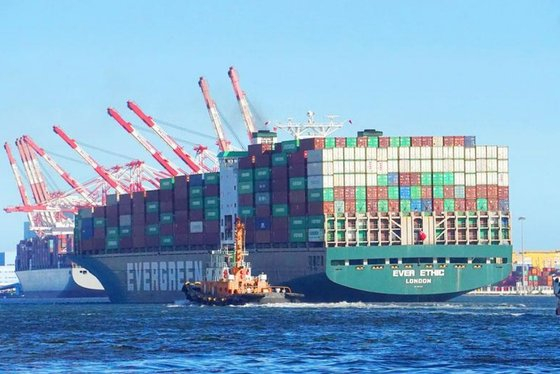
Samsung Heavy Industries Co., a leading South Korean shipbuilder, has won a 3.96 trillion won ($3.13 billion) deal to build 16 methanol-powered container ships for Taiwan’s Evergreen Marine Corp., the world’s fourth-largest shipping firm.
Samsung Heavy said in a regulatory filing on Monday that the 16,000 twenty-foot equivalent unit (TEU) ships will be delivered to an Asian ship operator by the end of 2027.
Samsung didn’t identify the ship operator but industry sources said it received the order from Evergreen.
The deal’s value marks the single largest order of any Korean shipbuilder on record.
Before this one, Samsung's biggest deal was clinching a 3.33 trillion won order from the Qatari government in June of last year to build 12 liquefied natural gas (LNG) carriers.
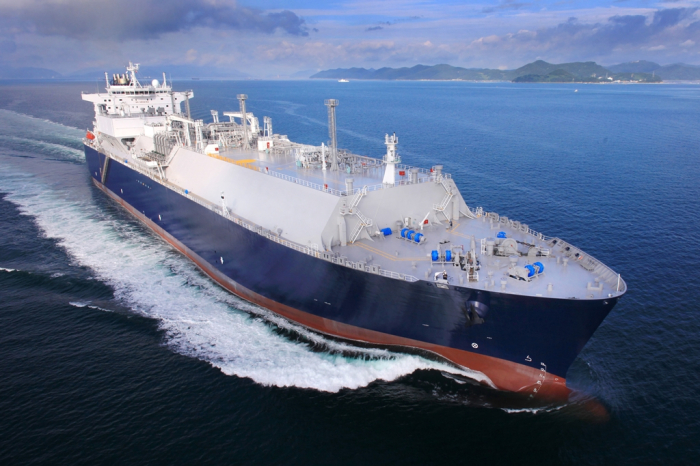
Samsung said the latest deal, which accounts for 67% of the company’s entire 2022 sales revenue of 5.95 trillion won, represents two-thirds of its 2023 sales target of $9.5 billion.
So far this year, the company has clinched shipbuilding orders for 25 vessels worth $6.3 billion.
As a result, Samsung’s order backlog has risen to $33.6 billion from $29.5 billion at the end of 2022.
DEAL TO BOOST THIS YEAR’S EARNINGS
“With the latest deal, we are going to focus on value-added ships to boost profitability,” said a Samsung Heavy official.
He said the company will be able to meet annual order targets for the third consecutive year in 2023 as the company is also positive about winning more orders for LNG carriers and floating LNG (FLNG) projects expected from the Qatari government later this year.
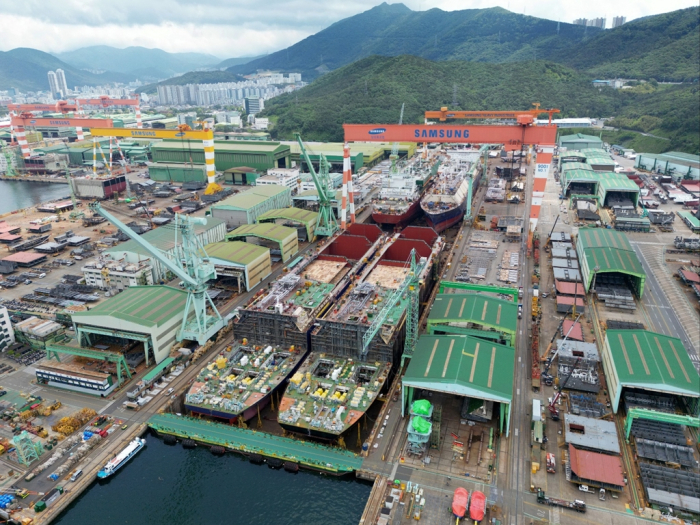
LNG carriers are more profitable than oil tankers and container ships.
In 2021, Samsung Heavy also won a 2.8 trillion won deal from Taiwan’s Evergreen for 20 units of 15,000-TEU container ships.
“Evergreen is a key customer of Samsung. It regularly places shipbuilding orders with the Korean company,” said an industry official.
Industry watchers expect Samsung Heavy to post about 180 billion won in operating profit this year – a turnaround from annual losses since 2015.
Samsung Heavy said all six docks at its Geoje Shipyard are fully occupied with shipbuilding projects.
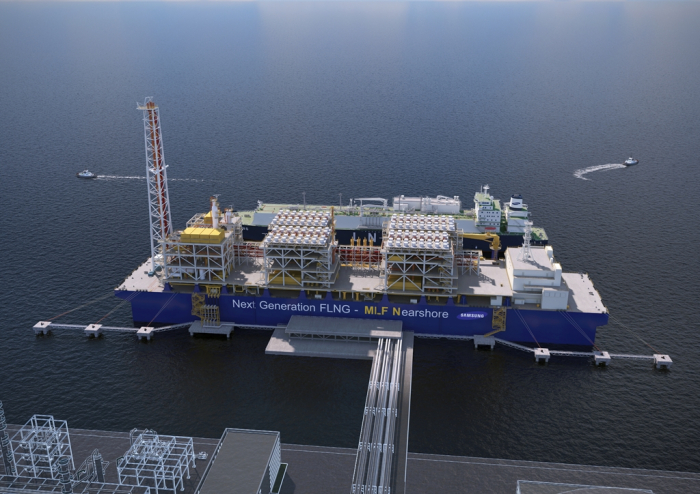
ECO-FRIENDLY SHIPS
Analysts said Korea’s Big Three shipbuilders – HD Korea Shipbuilding & Offshore Engineering Co. (HD KSOE), Hanwha Ocean Co. and Samsung Heavy – stand to benefit from tighter environmental regulations and growing demand for eco-friendly vessels, including methanol-powered ships, given their advanced shipbuilding technologies.
With major economies around the world attempting to cut emissions to meet net-zero targets, the shipping sector has been looking for ways to cut the environmental footprint of its operations.
Methanol had been a less-favored fuel for ships because of higher production costs. With increased natural gas production globally, however, demand for methanol-powered ships is increasing in line with tighter environmental regulations by the International Maritime Organization (IMO).
Methanol can reduce sulfur oxides by 99%, nitrogen oxides by 80% and carbon dioxide emissions by more than 20% compared to traditional bunker C fuel.
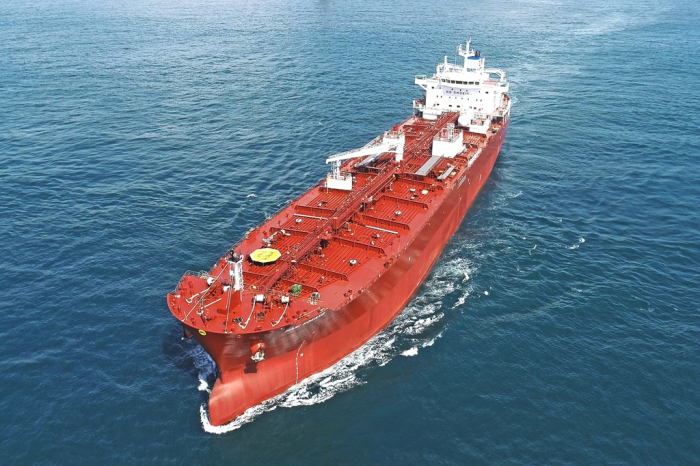
Methanol is also easier to store, transport and handle compared to other emission-free fuels such as LNG.
According to the Korea Shipowners' Association, the construction cost of methanol-powered ships is 16% higher than conventional fuel ships.
The IMO, a UN maritime safety agency, recently said it now requires its member states to cut carbon emissions from ships by 30% of their 2008 levels by 2030 and raise the target to 80% by 2040. All ships must aim to achieve zero emissions by 2050.
Write to Jae-Fu Kim and Hyung-Kyu Kim at hu@hankyung.com
In-Soo Nam edited this article.
More to Read
-
 Shipping & ShipbuildingSecondhand LNG carrier prices hit record high; prospects rosy
Shipping & ShipbuildingSecondhand LNG carrier prices hit record high; prospects rosyJul 12, 2023 (Gmt+09:00)
2 Min read -
 Shipping & ShipbuildingSamsung Heavy wins $495 million order for two LNG ships
Shipping & ShipbuildingSamsung Heavy wins $495 million order for two LNG shipsFeb 01, 2023 (Gmt+09:00)
1 Min read -
 Shipping & ShipbuildingKorean shipbuilders outpace Chinese in LNG carrier orders
Shipping & ShipbuildingKorean shipbuilders outpace Chinese in LNG carrier ordersDec 29, 2022 (Gmt+09:00)
3 Min read
Comment 0
LOG IN


